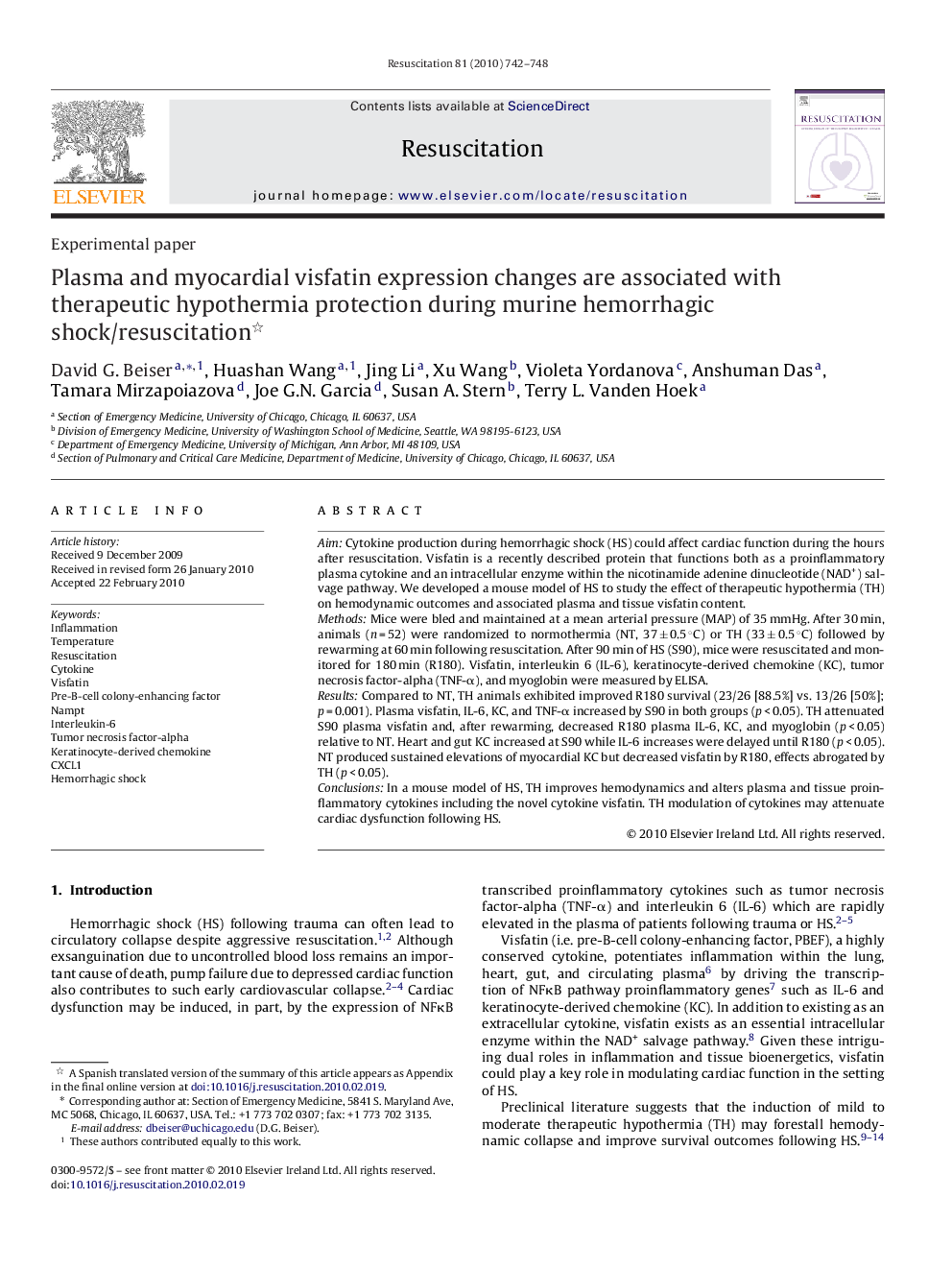| Article ID | Journal | Published Year | Pages | File Type |
|---|---|---|---|---|
| 3009898 | Resuscitation | 2010 | 7 Pages |
AimCytokine production during hemorrhagic shock (HS) could affect cardiac function during the hours after resuscitation. Visfatin is a recently described protein that functions both as a proinflammatory plasma cytokine and an intracellular enzyme within the nicotinamide adenine dinucleotide (NAD+) salvage pathway. We developed a mouse model of HS to study the effect of therapeutic hypothermia (TH) on hemodynamic outcomes and associated plasma and tissue visfatin content.MethodsMice were bled and maintained at a mean arterial pressure (MAP) of 35 mmHg. After 30 min, animals (n = 52) were randomized to normothermia (NT, 37 ± 0.5 °C) or TH (33 ± 0.5 °C) followed by rewarming at 60 min following resuscitation. After 90 min of HS (S90), mice were resuscitated and monitored for 180 min (R180). Visfatin, interleukin 6 (IL-6), keratinocyte-derived chemokine (KC), tumor necrosis factor-alpha (TNF-α), and myoglobin were measured by ELISA.ResultsCompared to NT, TH animals exhibited improved R180 survival (23/26 [88.5%] vs. 13/26 [50%]; p = 0.001). Plasma visfatin, IL-6, KC, and TNF-α increased by S90 in both groups (p < 0.05). TH attenuated S90 plasma visfatin and, after rewarming, decreased R180 plasma IL-6, KC, and myoglobin (p < 0.05) relative to NT. Heart and gut KC increased at S90 while IL-6 increases were delayed until R180 (p < 0.05). NT produced sustained elevations of myocardial KC but decreased visfatin by R180, effects abrogated by TH (p < 0.05).ConclusionsIn a mouse model of HS, TH improves hemodynamics and alters plasma and tissue proinflammatory cytokines including the novel cytokine visfatin. TH modulation of cytokines may attenuate cardiac dysfunction following HS.
